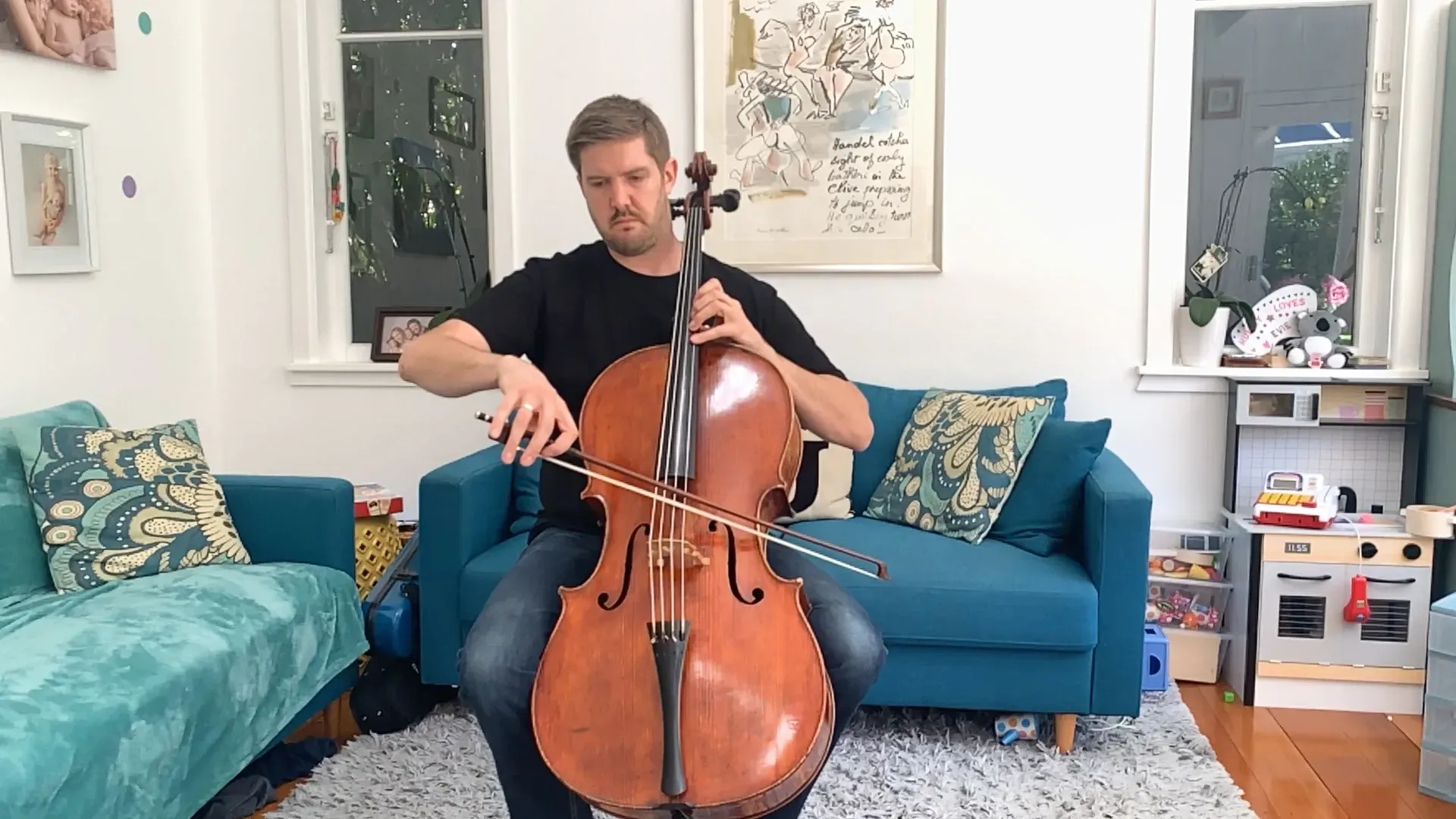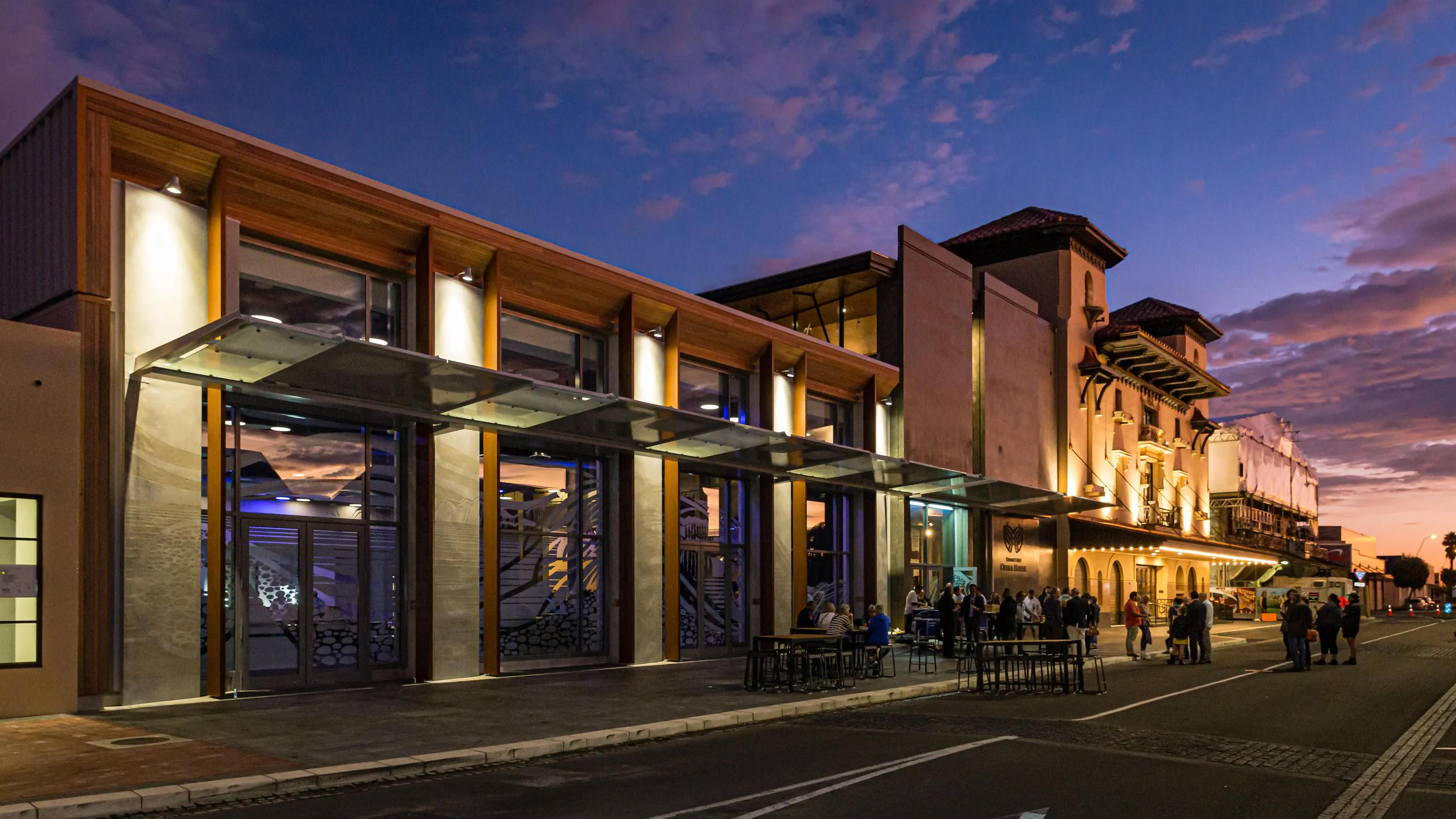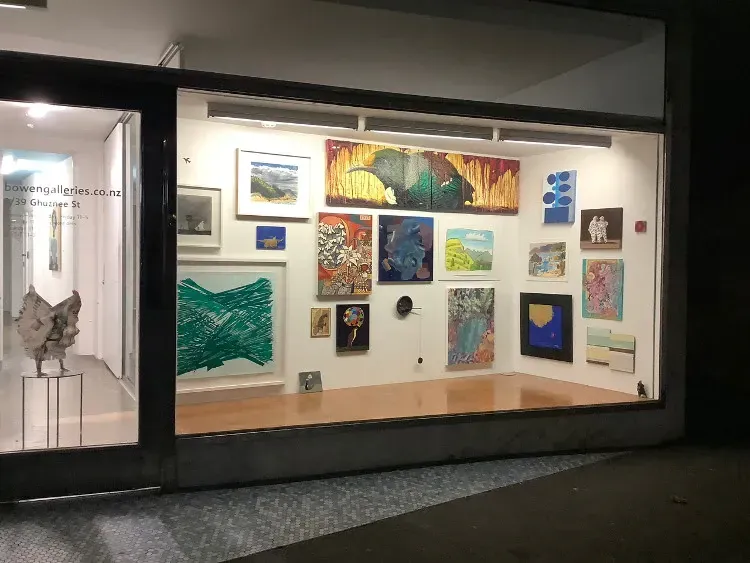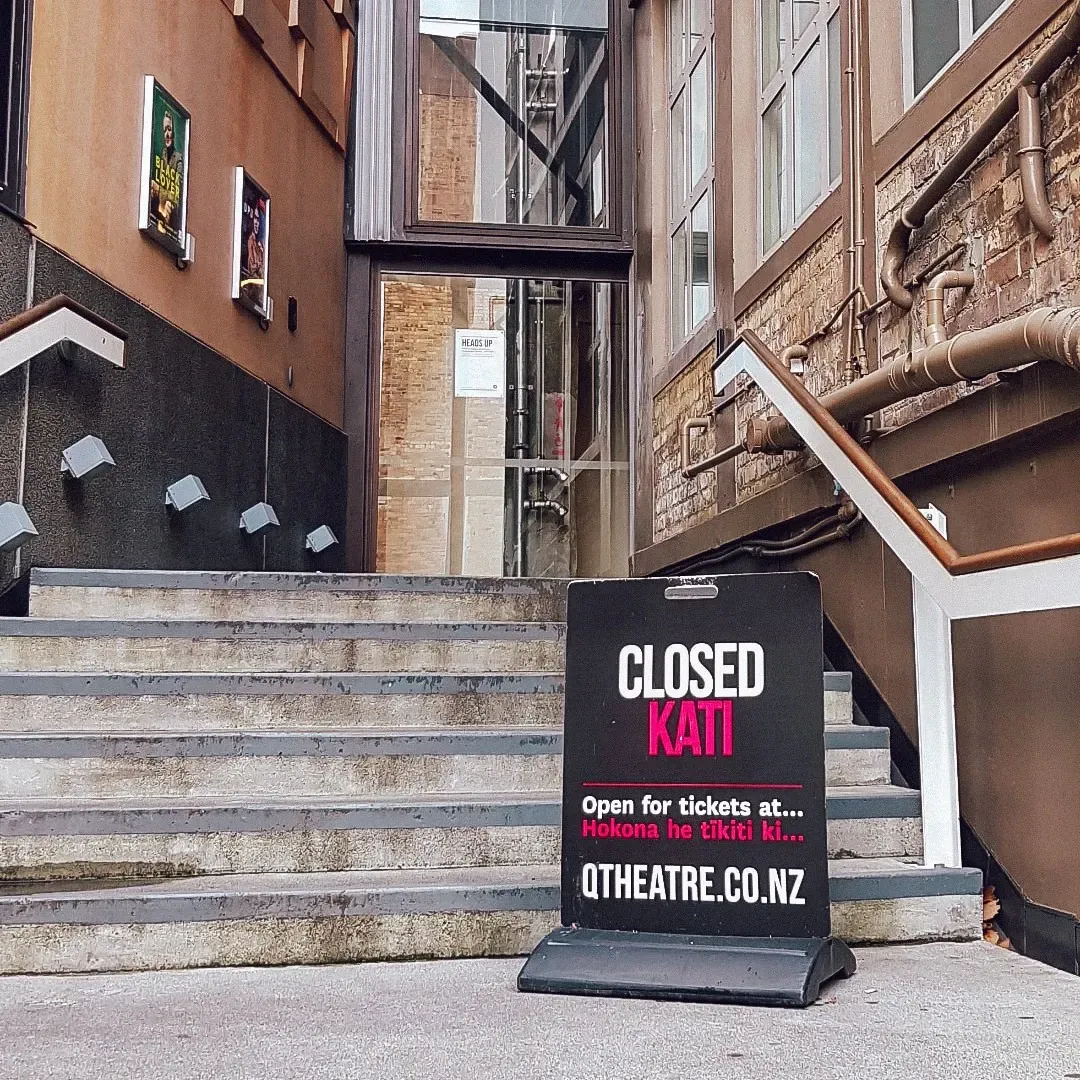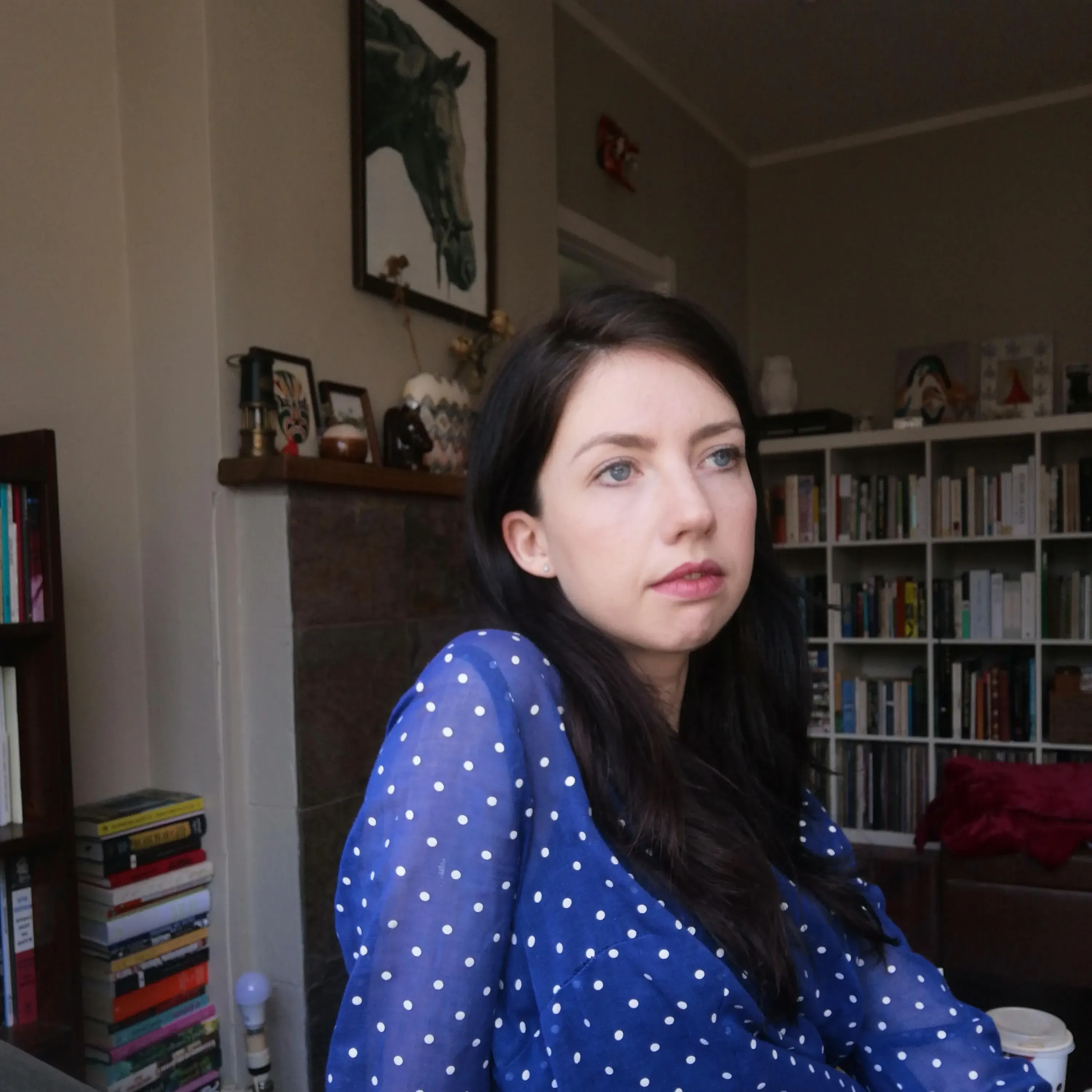Arts Online: Is There Any Money In It?
Written by
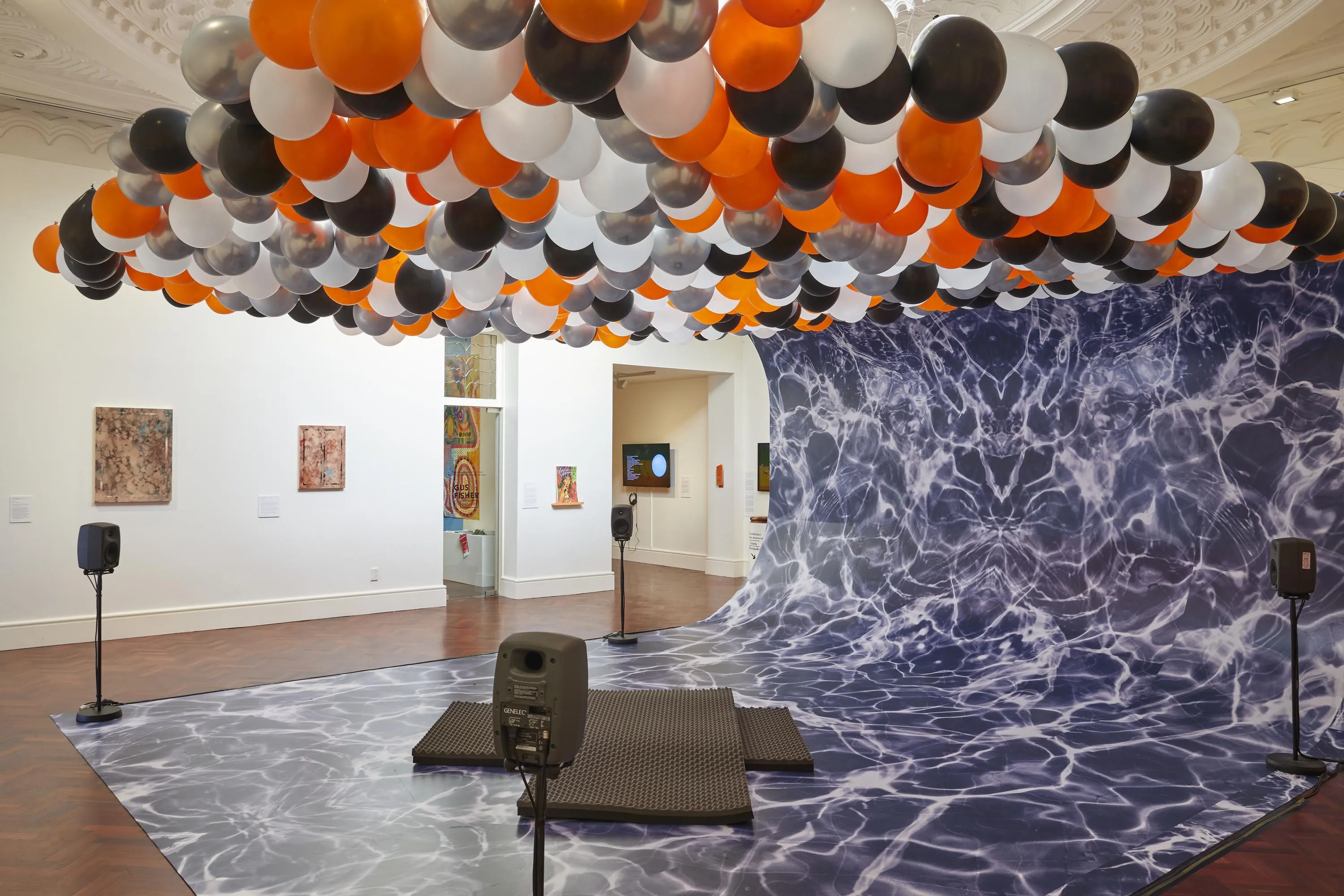
Mark my words, one day we’ll return to live events with renewed vigour.
While COVID-19 has caused trauma to the arts industry, it hasn’t reduced our access to the arts. Instead, the lockdown and cavalcade of cancellations have seen access explode to things you didn’t know existed, previously couldn’t afford to go to, or couldn’t be bothered leaving the house for (Kate Prior’s list is a good place to start).
What quality these online experiences offer next to what we do in our bubbles offline is worth pondering (no doubt we’re going to get more refined in our choices).
But an even more critical question is how the artists whose work we are enjoying are supported financially.
Artists in the past week have been quick to share online. With the swift movement of government, and now Creative New Zealand to provide emergency funding on trust is welcome. Let’s hope wage subsidy and what Creative New Zealand will fund from 14 April will allow us to appreciate the potential of enabling the oft-discussed artists’ wage.
Roll up, Roll Up?
Give some thought to what the months ahead look like for those working in the performing arts: artists, producers and venues.
It’s all very well for the NZSO, on their government salaries, to give us free concerts. A key question for most others working on contract is how well online streaming of live performance can be monetised so we can show our support.
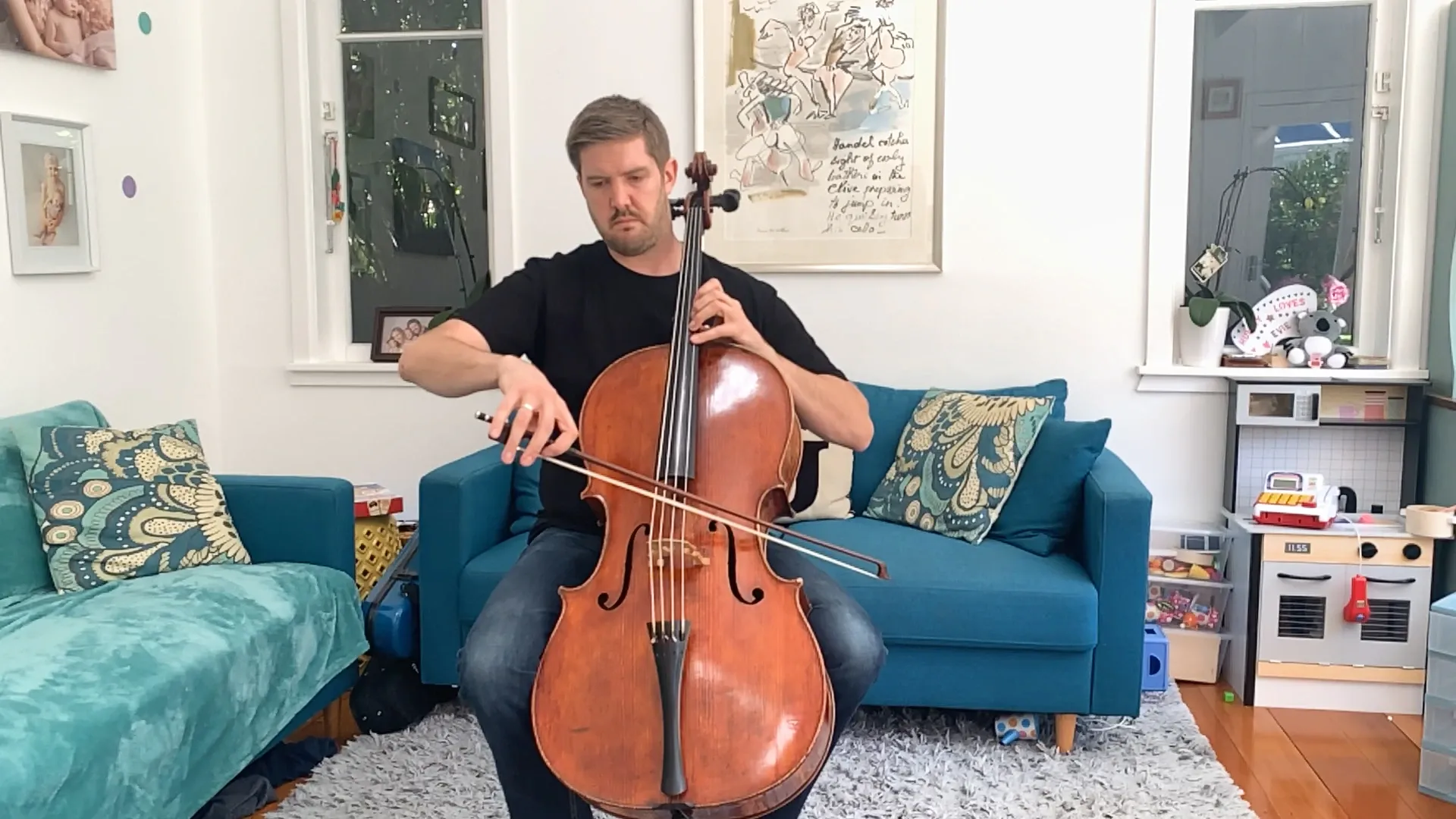
NZSO Section Principal Cellist Andrew Joyce performing at home as part of the first NZSO Play Our Part concert on 25 March. Photo: Latitude Creative.
Since closing their doors, BATS Theatre in Wellington has so far hosted two online productions via live stream. Solo shows. Bigger theatre presenters and companies have yet to follow suit. You’ll find a discussion about how that has gone for them on their Facebook page.
The first production Princess Boy Wonder was reviewed on international theatre criticism site The Theatre Times by David O’Donnell this past week. “Apart from the occasional milli-second freeze,” O’Donnell writes, “the transmission was flawless…. George Fowler’s personal-is-political his/her/story seemed even more compelling and relevant because of the circumstances under which we experienced it. For me, as someone who has studied theatre in Aotearoa/New Zealand for decades, this felt like a historic moment… in the face of unprecedented insecurity for performing artists and the industries that facilitate their work, this live-stream performance... gave some sense of hope that theatre can continue in some form through the uncertain days ahead.”
Two days after the screening, Princess Boy Wonder won Grand Design and Melbourne Fringe Tour Ready Awards at the New Zealand Fringe Festival awards.
“We want to pay artists who have had shows cancelled, but to do that we need your help. Buy a ticket and gather your family.” That’s the call of spoken word platform Motif Poetry to their weekly $10 Friday 8pm concert on Zoom, the House is Open: Live from Wellington. The first lineup last Friday was Hannah Fraser, Tayi Tibble, Paper Thieves, Sara Hirsch and Ania Upstill.
Meanwhile, at a time when we’re taking in more free or subscription-based film and television than ever, Show Me Shorts are offering smart paid-for online programmes with the Show Me Shorts online festival. The latest is an Iranian Women Short Film Night.
So, will we see an explosion in live stream work? Is there a market? How should the platforms be organised? There’s an opportunity for a significant public organisation to step in here that can gather from across the sector, as NZ on Screen has done so successfully in archiving screenwork.
Watch this space. Currently, the Arts Foundation’s Boosted programme and some of New Zealand’s ticketing companies are exploring how they might provide a portal to live stream events, free and ticketed.
Resourcing the Arts
Last week concerns were being expressed about the status of applications currently before CNZ for project funding. This was covered by Kate Powell in this TBI feature last week including an interview with Chief Executive Stephen Wainwright, and a further feature speaking with Verb Wellington producer Claire Mabey and two of those coordinating the very busy Facebook arts sector network group Aotearoa Arts and Events during the COVID-19 Crisis, Kane Forbes and Simon Bowden. CNZ has provided comment on the varied scenarios affecting artists here.
What is immediately apparent is the difficulty for the performing arts, with entire venue based careers on hold. Auckland Live and the Performing Arts Network of New Zealand have convened an online hui weekly on Mondays at 11am over the next month, for the arts community (next week: Tama Waipara, Meg Williams and David Inns).
The first panel is available via Youtube facilitated by Jo Randerson, featuring CNZ’s Cath Cardiff, director of Tempo festival Cat Ruka, and chair of PANNZ Megan Peacock-Coyle, with questions put to the group from those gathered (The Big Idea have reported on this here). Cardiff spoke eloquently about the situation CNZ found itself in, and its need to change its response quickly.
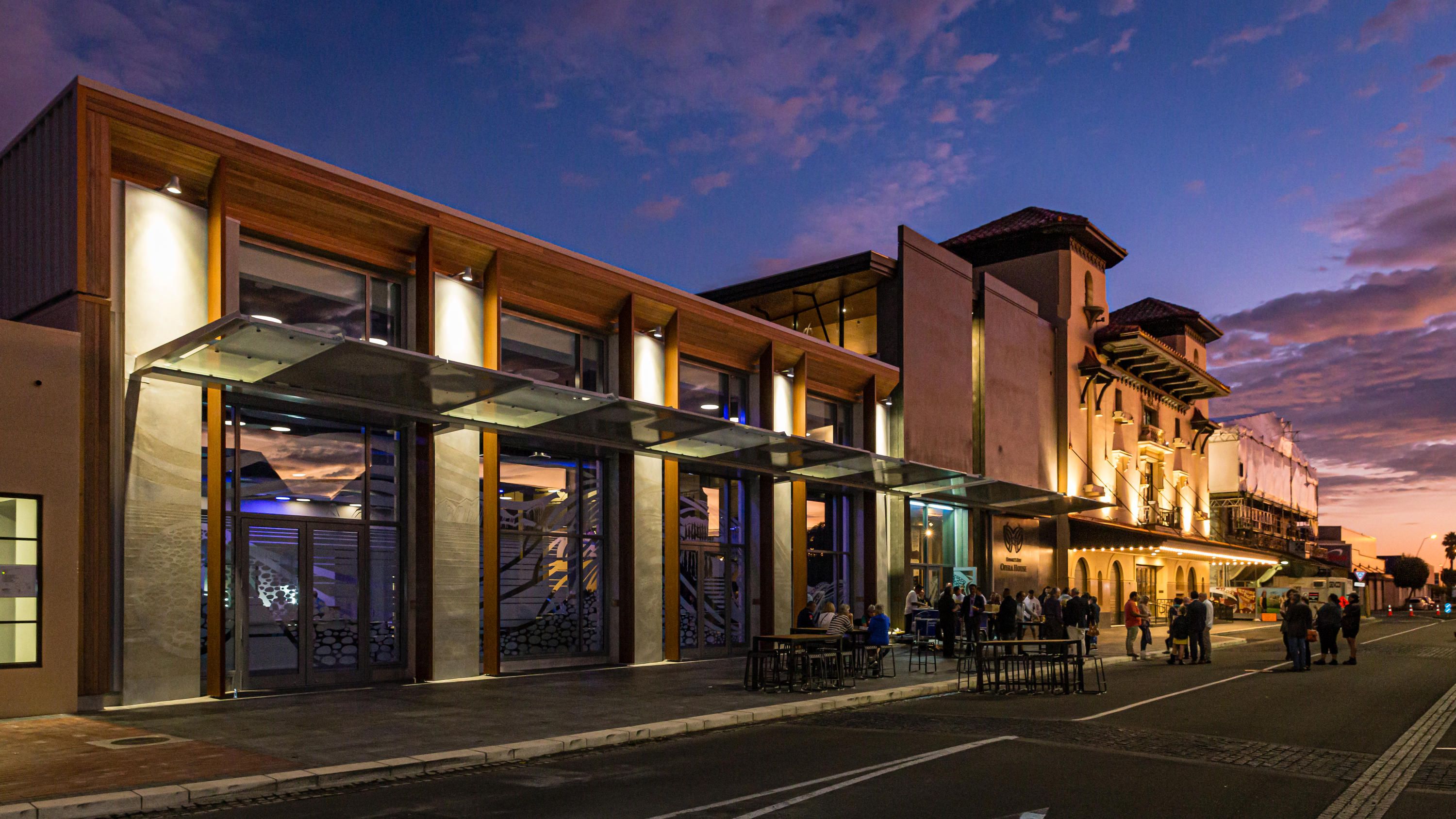
The new Toitoi in Hawke’s Bay - closed just after it opened.
There was also interesting comment from Peacock-Coyle, manager of Toitoi - Hawke’s Bay Arts and Events Centre that the venues most at risk financially are those run not by councils but by independent trusts. Peacock-Coyle should know: Toitoi just reopened six weeks ago after years of closure.
Cat Ruka is one of a collective of Māori performing arts producers who have set up a Facebook group for sharing and support for creatives, Mana Moana Creatives and a document for collecting essential information.
Meanwhile, New Zealand music industry charity MusicHelps has extended its services to the broader arts community providing a free counselling service available 24/7, online and on the phone (0508MUSICHELP), as Vicki Anderson of The Press highlighted this week.
Increasing Access
A great example of increasing access and putting a human face to things was playwrights’ agency Playmarket’s decision this last week to push on with the Adam New Zealand Play Awards. It was presented via video with nominations introduced by Playmarket’s staff from their different residences.
The main award went to Jess Sayer for This Particular Room, and she also won the award for Best Play by a Woman Playwright.
Sarah Browne (Ngāti Porou) received the award for Best Play by a Māori Playwright, and the award for Best Play by a Pasifika Playwright went to Tanya Muagututi’a.
A new award was introduced, the McNaughton South Island Play Award, going to Carl Nixon for An Unlikely Season. That award was established by Dr Christina Stachurski, in memory of Professor Howard McNaughton, a leading expert on NZ theatre who taught drama for 38 years at the University of Canterbury.
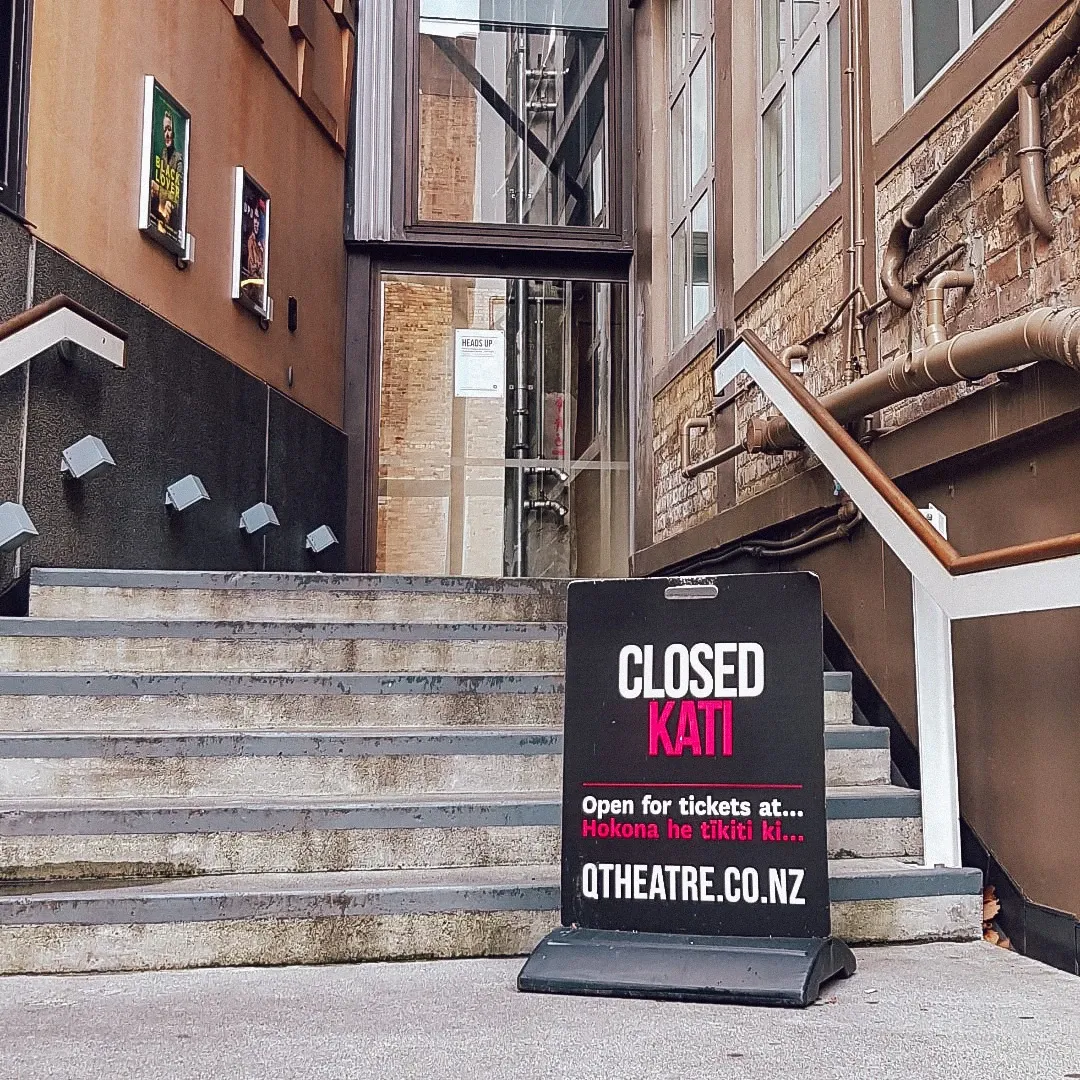
We may need to get use to these signs.
Major Event Cancellations Ahead
As wonderful and inventive as the online offerings have been, nothing beats being there in the flesh. How far out can we expect 2020 events to be getting cancelled?
The World of Wearable Arts in September and October has recently been scrapped, citing the need to cancel their international competition. The Edinburgh Fringe, festival and book festivals in August, one of the world’s biggest events has been cancelled.
Not everyone is pulling out of 2020 though. The Wellington Jazz Festival is currently off until ‘late 2020’ and this week the Melbourne Fringe bravely announced new dates in November. “We’re planning for every contingency to ensure that no matter what form the Melbourne Fringe Festival will need to take come November – in the same room, socially distant or completely virtual,” stated Creative Director Simon Abrahams:
Currently as noted by Dan Slevin on RNZ’s At the Movies, there’s been no word from July’s New Zealand International Film Festival. Sydney Film Festival in June was cancelled two weeks ago. Slevin also has some interesting musings on how COVID-19 will affect our appetite for sitting in the dark before a screen close to others.
Galleries Off and Online
A shout out to all you inner-city residents looking for something new on your walks. In Wellington, there are two galleries with street windows taking the opportunity to provide a changing display of art (folks in other centres let me know: mark.amery@thebigidea.co.nz).
Suite in Wellington has new work on display daily. ““I think this is a time when people will slow down, digest things and consume things, and become better people for it,” Suite director David Alsop tells the Dominion Post.
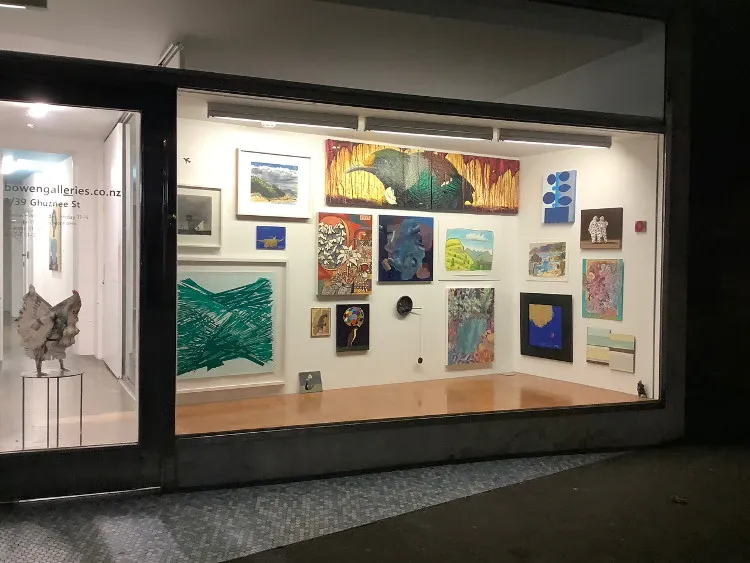
Bowen Galleries window gallery during the lockdown.
Round the corner, before lockdown curator Gregory O’Brien had the initiative to get into the big window of Bowen Galleries and hang a group show, salon-style. Details here.
We can expect a substantial upsurge in online content from public galleries, providing welcome commentary on collections and exhibitions.
Some nimbler, smaller galleries are in first. Potocki Patterson in Wellington has put their ‘Super CubaDupa’ group show (which never got live spectators but was ready to launch) online in virtual reality, 180 videos and as a catalogue.
Guest curator Maria Brown provides a short video tour of the National Portrait Gallery’s exhibition of the work of Bill Sutton, inspired by his comment that having a portrait gallery in New Zealand was “a good idea”. Here’s a Stuff interview together with the tour.
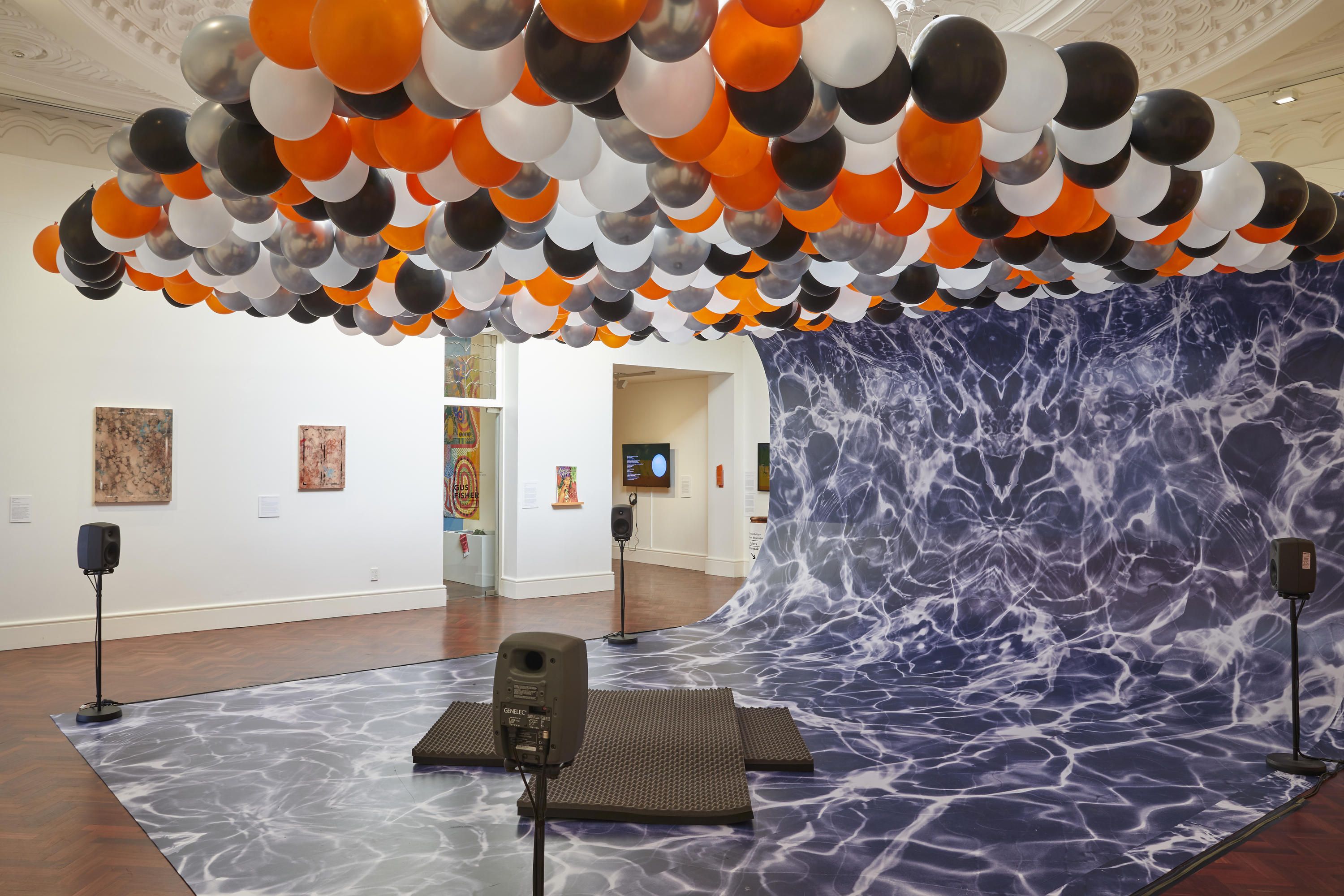
Queer Algorithms.
In Auckland, Gus Fisher Gallery have opened an online gallery for group show Queer Algorithms. While it stops well short yet of letting you explore the full show, there’s lots of goodies currently going up, including interviews with artists like Miranda Bellamy and Shannon Novak, and web-based artwork ‘Brandon.’
Biggest respect though goes to our biggest institution: Te Papa. They have put items from their collection online as jigsaws, and they’re not easy! I’m looking forward to attacking E Mervyn Taylor’s ‘Magical Wooden Head’ with the kids on the next rainy day.
In the silver linings category: the April Issue of Canterbury street art newspaper Artbeat made it to the printer in time, but that’s no help in a time of lockdown. However, The content is available at their website, and - so you can, if you’re like me, still get that thrill of turning pages - up on Issuu as an actual newspaper. It includes, says editor Warren Feeney, heaps of things “that will not happen over the next 30 days - but there is some pleasure in knowing they could have happened - seriously.”
Feeney’s proactivity hasn’t stopped there. His monthly column for The Press on must-see exhibitions has been neatly turned into an online edition.
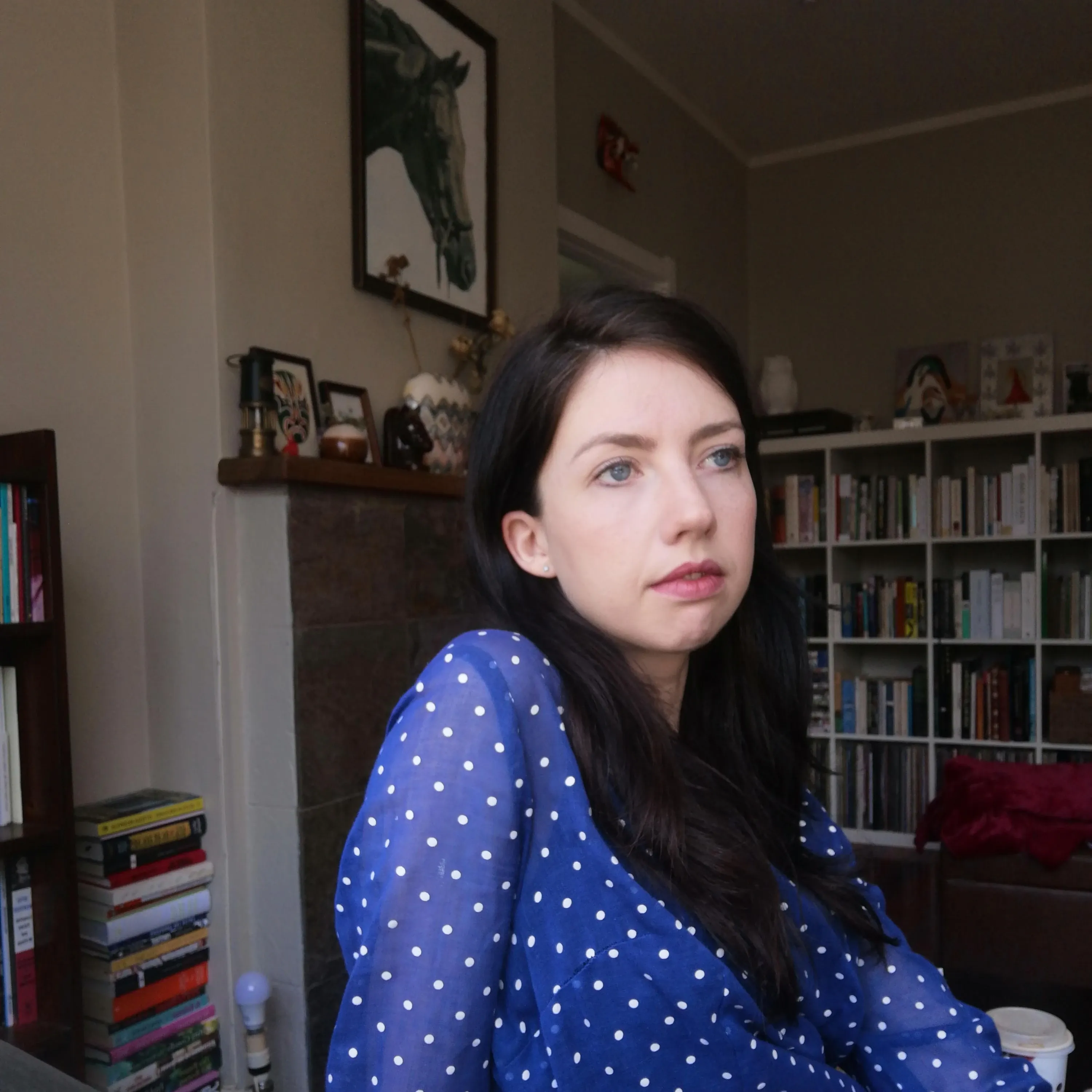
Hera Lindsay Bird.
Literary Online
Before lockdown, Christchurch Art Gallery librarian Tim Jones supplied all their bathrooms with poems by New Zealand poets to make the “recommended 20-second hand-washing sessions pass a little more bearably.” Now the gallery has taken this idea online, matching a poem to work from their collection. Here, for example, is Tim reading ‘On First Looking into Chapman’s Homer’ by John Keats, the poem behind Michael Parekowhai’s sculpture of the same name.
Some bigger, long-running projects are already well-established online affairs. Live now is the latest 2019 edition of Ōrongohau/Best New Zealand Poems, with 25 poems chosen by Hera Lindsay Bird. Victoria University’s International Institute of Modern Letters (IIML) has published the anthology annually since 2001. Impressively they’re all online, and to boot, 107 of the poems are available, performed by the poets themselves.
“I tried to come to this process with a closed mind and a suspicious heart,” Bird said of her selection, “because there’s nothing better than the feeling of being won over by a piece of writing.”
The selection includes the youngest poet ever featured, 15-year-old Maha Al Mansour, who came to New Zealand from Syria in 2017.
The Auckland Writers Festival may have cancelled, but in global news announced this week, writers and book lovers have come together to launch a new online literary festival, Bookbound 2020. It’s being billed as “the world’s first antiviral festival”, running 27 April to 3 May 2020 based out of the UK, and it will feature New Zealand writers Pip Adam and Freya Daly Sadgrove. It will be a mix of live stream author-to-author conversations, pre-recorded readings and children’s storytimes, via a YouTube channel. Sadgrove’s first book of poems was recently released, and she had a gorgeous chat with Bird on Pantograph Punch.
Meanwhile, over the weekend, The Spinoff book editor Catherine Woolf surveyed how the book industry is finding new ways to reach readers.
Interesting Writing
Clearly completed pre lockdown, when Tautai Contemporary Pacific Art Trust’s plans to open their new gallery space in K Road were still on track for late March, is this Viva profile published on lockdown Wednesday on “power art couple”, poet and Tautai director Courtney Sina Meredith and artist Janet Lilo. There’s lots of lovely images of art around their home shot by Babiche Martens.
Writer and Landfall editor Emma Neale had a busy publishing weekend. Her story on a children’s birthday party was published on Newsroom, while her personal essay response to a painting by Sharon Singer, ‘The Pink Jumpsuit’ was released on The Spinoff Art.
Pip Adam, mentioned earlier, is currently featuring a series of short writing exercises via audio on her excellent podcast series Better Off Read.
Online art publishing platform Contemporary Hum has launched a new series focusing on New Zealand arts activity in Asia. In the first essay, Sharmini Aphrodite reviews New Zealand/Austrian artist André Hemer’s recent show at Yavuz Gallery in Singapore, ‘Images Cast by the Sun.’
Saying Sorry
Finally, good to see web-based publishers following good media practice and making retractions and apologies when considered due. In this age of free-flowing independent information, getting it wrong is far easier. The Pantograph Punch has withdrawn the article they published ‘Saving Palmerston North’s Art Gallery… from what exactly?’ commenting here that “That article suggested that the motivation behind a petition to save Palmerston North’s Art Gallery was something other than its clearly stated purpose of asking Council to put in place an improved governance structure for the gallery. The Pantograph Punch accepts that there was no factual basis to suggest some other motive, and retracts this suggestion. The Pantograph Punch unreservedly apologises to the petitioner of record, Bronwyn Zimmerman, for the damage and distress that this publication has caused her, and also apologises to those who have signed the petition.”
